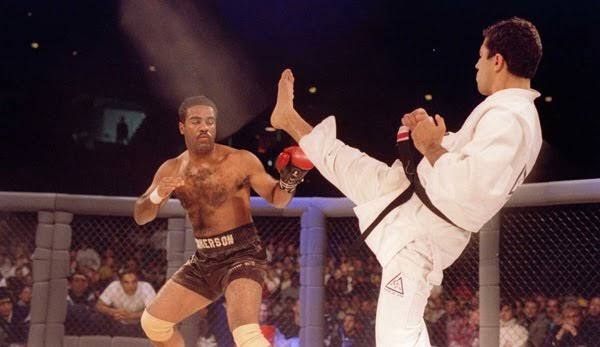Good morning and welcome back to the Brazil Sports newsletter. On this week’s edition: the birth of the UFC and the strange process of creating a brand-new sport. Plus, Palmeiras: champions last year, crisis this year. What went wrong? Happy reading!
The birth of the UFC
The idea of a “new sport” is something that sounds strange to the ear. The sports we know and love are often well over a hundred years old, so the thought of creating something new seems confusing and frankly unlikely. However, martial arts fans were faced with this situation back in 1993, and the inaugural edition of the Ultimate Fighting Championship, or UFC.
Why it matters. UFC 1 turned 26 years old last month, and in the years that followed the groundbreaking event, the sport of “mixed martial arts,” or MMA, became a household name and a multi-billion-dollar enterprise, led by the UFC franchise.
Which is best? While there are still many who turn their noses up at MMA, for what they see as an over violent and exploitative industry, the simple conception of the sport is a fascinating story, based on answering the question: which martial art is best? The idea of the Ultimate Fighting Championship was to gather fighters from a number of different disciplines, with vastly different skillsets and techniques, to see who would come out on top.
This ultimate question was put to the test in the very first fight of UFC 1. Tall, lean Dutch fighter Gerard Gordeau—a specialist in savate boxing—faced giant American sumo wrestler Teila Tuli. The announcers were not envious of Gordeau’s position, having to face someone “of Tuli’s size.” But the fight was over in 26 seconds. Tuli charged to try and take down his opponent, who easily dodged his advance and delivered a knockout roundhouse kick to the sumo specialist’s face. The kick knocked out three of Tuli’s teeth, two of which were reportedly left lodged in Gordeau’s foot.
Brazilian jiu-jitsu above all. As the bracket progressed, a clear pattern emerged. Fighters based on power and striking were left behind by quicker competitors focusing more on grappling and submissions. Brazil’s Royce Gracie, one of the pioneers of Brazilian jiu-jitsu, was the ultimate champion, defeating Gordeau in the final with a rear-naked choke. The final was not...


 Search
Search






































